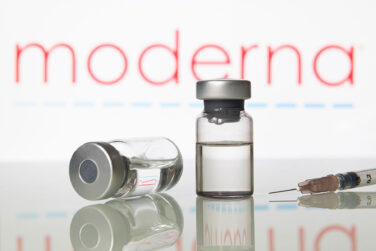AI-powered chatbots are trying to fill a gap in human mental health providers.
PATIENT PAGES
How Patients Feel About AI-Powered Therapy
Although Americans may be more willing to seek mental health care, there is a shortage of mental health care providers and lack of access for many patients. Telehealth has broadened access, but it may still not be enough. Enter AI. In the last few years, AI-powered chatbots have been used for basic mental health support and the potential uses for the technology in the space is continuing to grow. But how do patients really feel about talking to a chatbot as they would a therapist? New data from a self-serve poll hosted by YouGov Surveys suggests that a third of Americans would be comfortable sharing their mental health concerns with an AI chatbot instead of a human therapist (34%). The study shows 18-to-29-year-old Americans (55%) are the most comfortable talking about mental health concerns with a confidential AI chatbot. The comfort-level around AI chatbots has a clear age gap. Nearly 73% of Americans above the age of 65 and 63% of 45-to-64-year-olds say they would be uncomfortable talking about their mental health to an AI chatbot as opposed to a human therapist.
35% of respondents are familiar with these AI-based services and they shared what they’re most concerned about. 41% of these respondents appreciate the privacy and anonymity these applications offer. Unsurprisingly, 50% find the ease of access to such applications most appealing over seeing a human therapist. A third of respondents like that chatbots offer personalized recommendations (31%) and more than a quarter like that AI chatbots can offer supplemental support in between sessions with a human therapist (27%).
Those who are familiar with this type of tech have some concerns as well. 46% are worried about their data privacy. Understandably, 41% are concerned by the lack of access to human support, while 40% are concerned by the limited emotional abilities of chatbots when handling complex issues and another 40% worry about potential misdiagnoses.
It’s obvious that Americans are open to using AI for mental health support, but there are concerns many patients have that cannot be addressed by technology alone. The chatbot
therapist has a role to play in the mental health system, but providers and suppliers will need to work to gain the trust of even those patients willing to use the technology.
DOCTOR DOCS
HCPs Like Pharma Companies—Somewhat
Pharma’s public perception has never been entirely favorable, but new data from CMI Media Group shows HCP perception of pharma companies is on the rise. The study also points to the attributes that make HCPs trust pharma companies the most. CMI’s data reveals 61% of physicians from a range of specialities have a somewhat or very favorable view of pharmaceutical companies. The good news is 51% have a most-trusted company. Trust factors into this a great deal; 86% say that their past experience with a company has at least some influence on the brands they prescribe to their patients.
So what makes an HCP trust a pharma company? First and foremost is that the company “…provides affordable pricing for my patients” with 73% of HCPs ranking that as very important and 21% saying it is somewhat important. A close second is the clinical efficacy of treatments. Coming in third, 66% of HCPs find it very important that a pharma company “puts patients first.” HCPs also rated trust, treatments for common conditions, innovation, and patient support programs as very important for a pharma company. HCPs have more conflicting feelings towards pharma’s corporate branding. An equal number of physicians feel that it helps patients learn about treatments and that branding messages are too broad and may confuse patients. Open-ended responses reveal that most HCPs would prefer advertising to be more focused on medications than branding. Some do not want branding messages to influence patients over information about a medication’s efficacy.
“In addition to following FDA guidelines for ads, marketers can build trust with HCPs through consistent and honest communication offering information about products, clinical trial data, and safety profiles. By adapting strategies based on HCP feedback and the evolving needs in the healthcare landscape, brands will be able to foster long-term relationships with HCPs,” explains Debbie Kenney, Director, Video Investment at CMI Media Group.
FDA UPDATE
Amgen received FDA approval for IMDELLTRA™ (tarlatamab-dlle) for treatment of adult patients with extensive-stage small cell lung cancer (ES-SCLC) with disease progression on or after platinum-based chemotherapy. It is the first and only DLL3-targeting Bispecific T-cell Engager therapy that activates the patient’s own T cells to attack DLL3-expressing tumor cells. This is an innovative solution to an aggressive cancer using the company’s FDA-approved Bispecific T-cell Engager (BiTE®) molecule.
The FDA approved the first drug for WHIM syndrome (warts, hypogammaglobulinemia, infections and myelokathexis), a rare genetic disease that causes the body’s immune system to have less circulating mature neutrophils and lymphocytes, lowering the ability to fight infection. Patients may suffer from recurrent infections, including pneumonia, sinusitis, and skin infections and are at risk for life-threatening bacterial and viral infections. X4 Pharmaceutical’s Xolremdi (mavorixafor) capsules is approved to treat patients 12 and older by increasing the number of circulating mature neutrophils and lymphocytes.

MedDevice Approvals
The FDA granted approval to market to Abbott Medical’s SCS System, including Prodigy, Proclaim Plus, Proclaim XR, and Eterna Systems, a spinal cord stimulator system. Abbott’s Spinal Cord Stimulation (SCS) System is an implantable device, a neurostimulator, that treats chronic pain of the torso, arms, and legs that is difficult to manage. This includes the pulse generator (IPG), the controller to be used externally by the patient, and the external physician programmer. The Abbott SCS System can produce several types of stimulation varying in strength, speed, and frequency. “Tonic” electric stimulations use a consistent stream of strong pulses, and “burst” stimulations use groups of milder and faster pulses.







